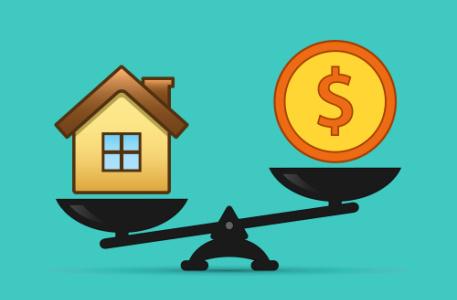
Mortgage Points: What are They, and When are They Beneficial?
When interest rates increase, the monthly payment on a home can be significantly higher! But there's at least one way homebuyers can bring the rate down—for a price.
What’s a mortgage point?
In mortgage lending, the term “point” usually refers to an optional fee you can pay to reduce the interest rate on your mortgage. It may also be called a “discount point.” And sometimes lenders call this process “buying down the rate.”
The word point is used because the cost of reducing your rate is expressed as a percentage point of your total loan. For example, if your loan is $250,000, a point equals one percent of that amount, or $2,500.
But points aren’t limited to whole numbers and can also be expressed in fractional amounts. For instance, a lender may offer a discounted rate of 1 and 3/8 points, or 1.375 percent of your mortgage.
Often, lenders offer rate discounts at multiple levels. Interest rates and the cost of discount points constantly change, but you may see something like this:
0 points for a 5% interest rate
1 point for a 4.75% interest rate
2 points for a 4.5% interest rate
If you decide to pay any points to reduce your rate, your lender will add this expense to your other closing costs.
Points can also mean something else.
Even though “points” usually refers to rate discounts, some lenders use the term when referring to their origination fees—the rate they charge to create (or “originate”) your mortgage.
Origination fees vary, depending on the size of the mortgage. Like discount points, origination fees are calculated on a percentage basis, generally 0.5% to 1.0% of the total loan amount.
So if your lender mentions “points,” you may want to clarify if they’re talking about discount points or origination points.
When should you pay for mortgage points?
The primary benefit of paying points is that the cost of financing your home decreases, lowering your monthly payments. But you will also need to come up with more cash at closing. There are at least two scenarios where buying down your rate could be prudent:
1. If you plan to own your home for a long time. How many months must pass before the upfront cost of mortgage points is offset by the savings on your monthly payments? Numerous online calculators can help you determine when you’ll recoup your costs. (Search for “breakeven calculator for mortgage discount points.”)
If you plan to live in your home beyond the breakeven point—or keep the home as an investment/rental property after you move out—it can be advantageous to buy down the rate.
2. If your down payment is already at least 20 percent. Many lenders charge higher interest rates for borrowers putting up less than 20 percent, or they may require private mortgage insurance (PMI). In either case, down payments under 20 percent mean higher monthly payments.
So, if you have enough extra cash to cross the 20 percent threshold, it’s usually better to put it towards your down payment instead of using it to buy down the interest rate.
Other options
If you think rates will decline, it might be preferable to pass on points now and wait for an opportunity to refinance your home later. But, of course, refinancing a home requires paying a new set of closing costs and establishing another breakeven point to determine if you’ll be money ahead.
You may also want to investigate adjustable-rate mortgages. ARMs are less common than traditional loans and offer several advantages and disadvantages.
